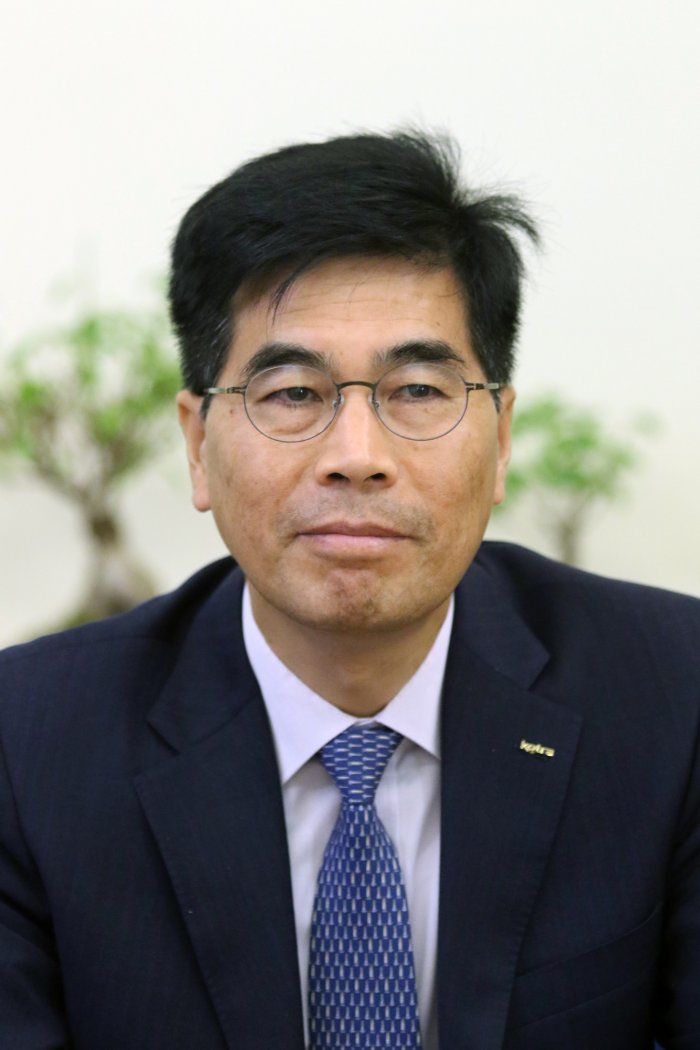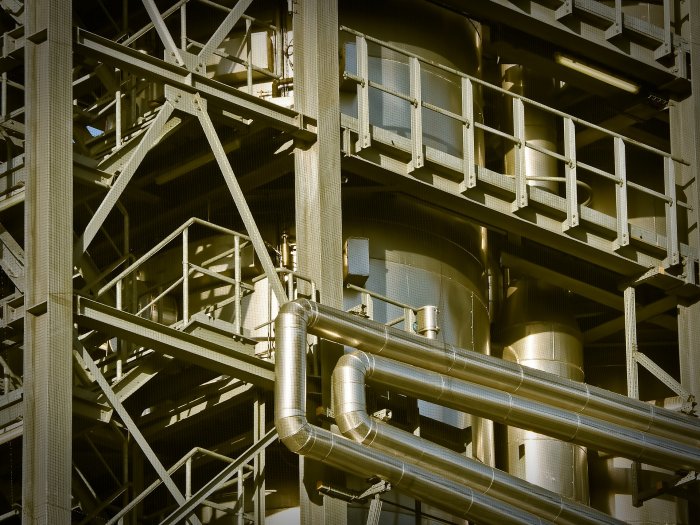KOTRA: Matchmaker for Korean SMEs and Hungary

Keewon Park, director of the Korean Trade-Investment Promotion Agency (KOTRA), the commercial arm of South Korea’s embassy in Budapest, talks to the Budapest Business Journal about KOTRA’s work and the background to how the country became the number one investor here in Hungary.
Keewon Park
BBJ: What are the goals of KOTRA?
Keewon Park: Our main goals are mentioned in our mission statement, which is leading the way for SMEs to explore overseas markets and to create global jobs. In order to fulfill this, we have several programs in terms of trade, investment and recruitment. For trade, we do market and buyer research, organize delegations and trade fairs, offer the Jishawha program (in which the KOTRA Business Center (KBC) acts as a local branch and supports marketing), and others to help Korean SMEs to export. The Budapest KBC offers most of the mentioned programs and has strength in industries such as cosmetics and pharmaceutical elements. For the investment, we provide clients with overall business environment information, which includes basic taxation, labor law, local regulations and even government-related activities like incentives. We occasionally prepare seminars so that Korean investors can obtain new insights or updated news about Hungary. In the process of helping investors, when they have successfully established a business in Hungary, we help them recruit Korean job seekers, mainly in Korea, which is creating global jobs.
BBJ: When were the first South Korean investments made in Hungary, and by whom?
KP: The first South Korean company to enter Hungary and invest was Samsung Electronics. This happened after Hungary opened the economy in 1989. Samsung Electronics moved its mid-large size color TV production, which was originally located in Wynyard, England. Since then, Samsung Electronics has engaged in further investment around 2007 and 2014. Due to its successful investments, this has enabled other companies like Hankook Tire and Samsung SDI to invest in Hungary.
BBJ: What is the total FDI from South Korea in this country, and what are the main sectors?
KP: According to the Hungarian Investment Promotion Agency (HIPA), the investment volume from South Korea recorded EUR 2.557 billion. And from the Korean Exim bank statistics, the direct investment in Hungary was recorded at USD 740 million in 2019. The numbers have been showing a sharp increase from 2018. The main sector is absolutely manufacturing of electric devices, which includes battery manufacturing.
BBJ: How many South Korean-owned businesses operate here, and how many people do they employ.
KP: Currently, it is estimated that more than 200 businesses operate here in Hungary. Mostly these are manufacturing business but some are local service providers like accommodation and catering services. Unfortunately, the number of people they employ overall hasn’t been counted, but as far as I am concerned, huge companies like Samsung Electronics, Hankook Tire, SK Innovation and some others do employ lots of Hungarians. They have also created jobs for Korean job seekers which, by successfully helping them to settle in Hungary, enabled us to achieve our goal to create jobs for those in Korea.
BBJ: Recently, there have been many investments connected to EVs, especially batteries. Is this a case of following the market trends, or is this a deliberate policy?
KP: Korea has been preparing to embrace the electric vehicle trend for some time. In the early 2010s, South Korea’s government not only provided a tax subsidy for early EV purchases, but also started to build electric related infrastructure such as charging stations. Also, companies like Samsung SDI, LG Chemical and SK Innovation predicted that future automobiles would run on electric batteries due to sustainability issues and enforced the R&D so that they could produce safe and high energy efficiency batteries. On the other side, the importance of climate change has been a hot potato worldwide and many countries, including EU nations, have been implementing environmentally friendly policies. Since several policies including the 2050 carbon neutral strategy have been announced, it has become an inevitable market trend and the early R&D into which many Korean companies have been pouring effort is starting to pay off.
BBJ: What other new trends in FDI might we see soon from South Korea in Hungary?
KP: I would say that the electric battery investment would continue for a while. Not only those who have already invested in Hungary, but also those would-be investors in Hungary are all focused on the electric battery sector.
BBJ: Is the Hungarian government a good partner? What would you change to improve the investment climate here?
KP: I would say that the Hungarian government is a good partner to Korean clients. The government not only provides a favorable environment for businesses by reducing corporate tax and providing investment incentives, but also enables the entry of Korean investors in the coronavirus border closure situation. In the recent first wave of COVID-19, thanks to the Hungarian government and HIPA, many essential business personnel were able to enter Hungary and do their duties, which enabled most of the Korean companies to operate according to schedule. Also, both governments have a good relationship, in which they regularly engage in a Joint Commission on Economic Cooperation. This relationship deepened after the Danube River accident (see separate box), in which the Hungary government showed wholehearted support.
Some Korean clients have complained of delays in the residence permit administration procedure. If this could be processed a bit quicker, I would say that the satisfaction of Korean investors will be highly increased.
BBJ: Do you have any involvement with Hungarian companies investing in Korea? What is the picture here?
KP: Actually, this is the weak part of our KBC. As KOTRA is both a trade and investment promotion office, other KBCs engage in promoting Korea’s business environment in order to bring foreign investments to Korea. Since the volume of Hungary companies investing in Korea has been relatively low (or none), that goal has not been given to our office. But if there is any Hungarian company willing to invest in Korea, the Budapest KBC is open and willing to provide any help needed, so please knock on the door!
‘Hableány’ Danube Tragedy
On May 29, 2019, a 27 meter (89 feet) tourist boat called the “Hableány” (“Mermaid”) was involved in a collision with the much larger 135 meter (443 ft) “Viking Sigyn” cruise ship near Margaret Bridge at around 9 p.m. in heavy rain. The “Hableány” sank within seconds and, although seven people were rescued at the scene, a total of 28 others died. All except two Hungarian nationals (the captain and a crew member) were South Korean tourists. It was the worst accident on the Danube in more than 50 years. In March of this year, the trial began of 64-year-old Yuriy Chaplinsky, from Odessa, Ukraine, the captain of the “Sigyn.” He is charged with misconduct leading to mass casualties and 35 counts of failing to provide help in a disaster. Chaplinsky, who has said he is devastated by the tragedy, denies that he was at fault for the accident. If found guilty, he could face a prison sentence of between two and 11 years. Cruise company Viking’s operating headquarters are in Basel, Switzerland.
SUPPORT THE BUDAPEST BUSINESS JOURNAL
Producing journalism that is worthy of the name is a costly business. For 27 years, the publishers, editors and reporters of the Budapest Business Journal have striven to bring you business news that works, information that you can trust, that is factual, accurate and presented without fear or favor.
Newspaper organizations across the globe have struggled to find a business model that allows them to continue to excel, without compromising their ability to perform. Most recently, some have experimented with the idea of involving their most important stakeholders, their readers.
We would like to offer that same opportunity to our readers. We would like to invite you to help us deliver the quality business journalism you require. Hit our Support the BBJ button and you can choose the how much and how often you send us your contributions.









